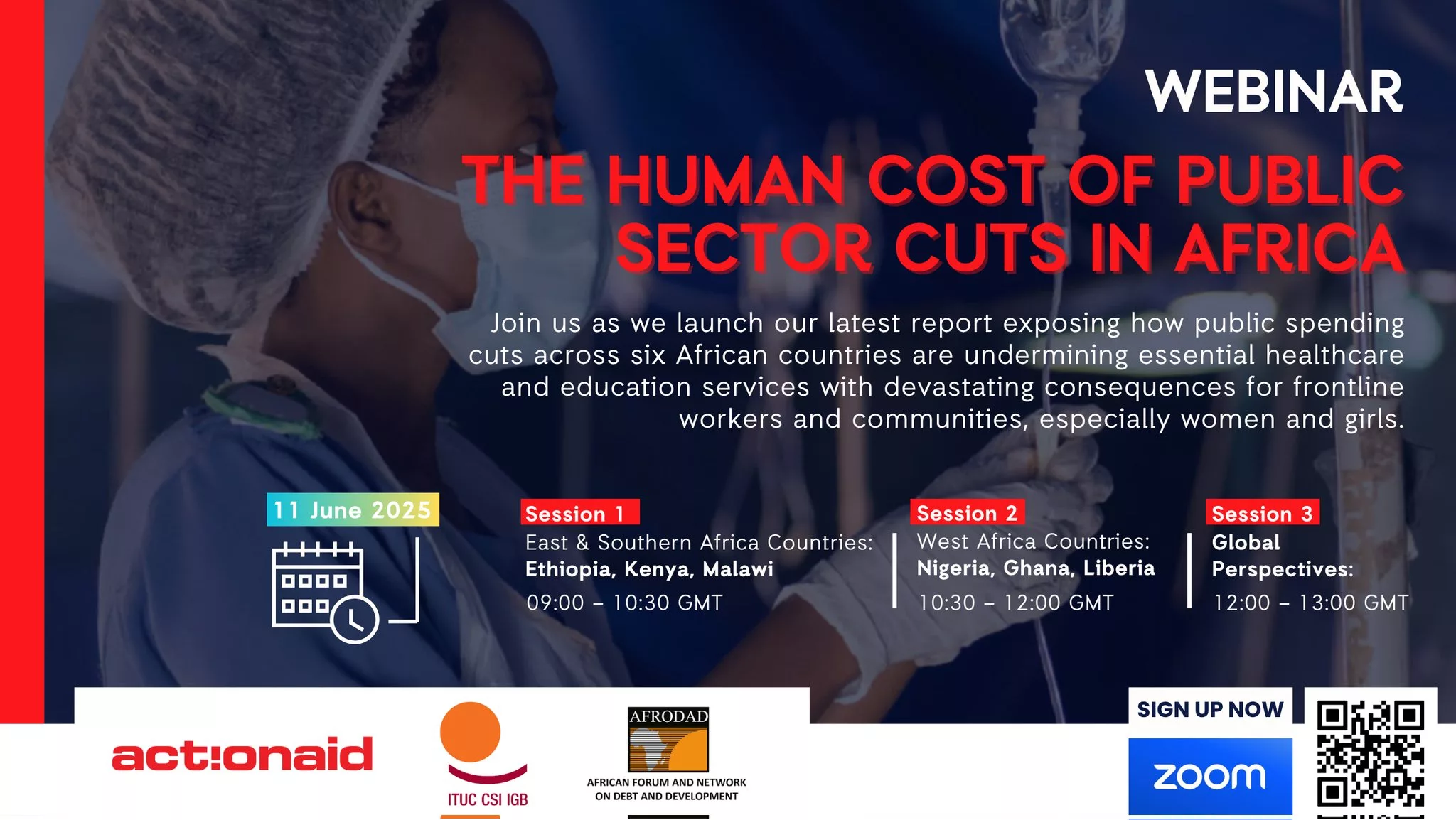|
Getting your Trinity Audio player ready...
|
ActionAid’s latest study “Human Cost of Public Expenditure Cuts in Africa,” was officially launched yesterday with renewed calls on the International Monetary Fund (IMF) to abandon its austerity measures such as public sector expenditure cuts for poor countries, saying such measures have brought more misery for poor and vulnerable such as women and girls in poor countries.
Conducted in six African countries including Malawi, Kenya, Ghana, Ethiopia, Liberia, and Nigeria, the study focuses on the impact of public expenditure cuts in the Health and Education sectors.
Sharing her reflections on the lived realities of cost of expenditure cuts in Malawi, ActionAid Malawi Executive Director, Yandura Chipeta, said poor Malawians including women and girls experience poor access to quality education and healthcare due to government’s limited investment in the two vital sectors.
“There has been reduced access to quality healthcare as the government does not have resources to invest in the sector. At the same time, with public sector wage cuts, the government is not able to recruit more healthcare workers to support the provision of quality healthcare. We have also noted that under-resourced healthcare results in increased unpaid care work burden for women and girls because if the hospital does provide services for the sick, it is women and girls who are forced to take care of the sick in their homes, thereby affecting girls’ education.”
Ms. Chipeta says the expenditure cuts have not spared the education sector, evidenced by the overcrowding in schools.
“You find that in most public schools; one classroom can have up to 120 and sometimes up to 200 learners instead of the recommended ratio of 60 learners for one teacher. This affects the quality of teaching and learning. So as conversations around financing for development commence, African governments including Malawi must push for debt cancellation and the establishment of a fair global financial architecture that prioritizes people over profit,” she said.
Reacting to the report launch, Ronald Phiri, Deputy Director in the Ministry of Gender, Community Development, and Social Welfare, concurred with Ms. Chipeta and said due to the limited resource envelope, the government is prioritizing critical sectors to cushion vulnerable groups from rising levels of poverty.






